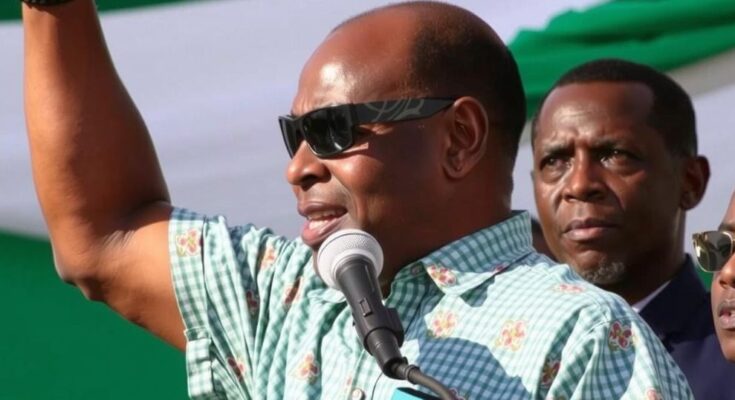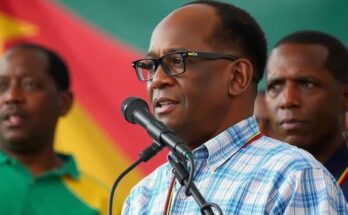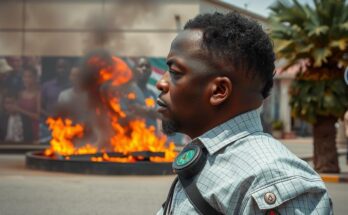The NDC claims John Mahama has won Ghana’s presidential election against NPP’s Bawumia, despite ongoing official tallying. Economic issues significantly impacted the election, with Mahama receiving 56.3% of internal votes, while Bawumia garnered 41.3%. Voter turnout was largely peaceful, but there were reports of violence. Official results are expected by Tuesday.
Ghana’s opposition party, the National Democratic Congress (NDC), has proclaimed that provisional results from the recent presidential election indicate that their candidate, John Mahama, has secured a victory. Potential official outcomes are still pending, as electoral authorities continue their verification process. The election featured a contest between Mr. Mahama and Mahamudu Bawumia from the ruling New Patriotic Party (NPP), who struggled to address public discontent concerning government policies and the rising cost of living.
The Ghanaian economy’s challenges played a central role in this election, with recent troubles including a debt default and high inflation rates, leading to a $3 billion bailout from the International Monetary Fund. Citizens were tasked with selecting a successor to President Nana Akufo-Addo, who is concluding his maximum eight-year term. In addition, they were electing new members of parliament.
NDC spokesperson, Sammy Gyamfi, asserted the party’s internal assessment revealed that Mahama had garnered 56.3 percent of the votes, while Bawumia received 41.3 percent. He stated, “It is very clear the people of this country have voted for change.” Local media reports indicate that preliminary tallies corroborate the NDC’s claim, as they found Mahama leading Bawumia with 42 out of the 276 constituencies reported. While voting proceeded largely peacefully, isolated incidents of violence were reported, including two fatalities.
The political landscape in Ghana has witnessed steady transitions of power between the NDC and NPP since the advent of multi-party politics in 1992. Bawumia campaigned under the slogan “Break the 8,” appealing for a third consecutive term for the NPP, but faced backlash related to the economic performance of the Akufo-Addo administration. Although inflation rates showed signs of gradual improvement, challenges such as high living costs have remained prominent issues for voters.
Mahama, who previously served as president from 2012 to 2017, capitalized on the prevailing economic grievances to mount a comeback following two unsuccessful attempts at the presidency. As of now, regional results are forthcoming, with official results anticipated by Tuesday.
With a robust history of democratic governance, Ghana’s political environment has predominantly been shaped by its two major parties—the National Democratic Congress (NDC) and the New Patriotic Party (NPP). Since re-establishing multi-party democracy in 1992, these parties have alternated in power for decades. The recent economic turmoil, characterized by high inflation and other fiscal challenges, has crucially influenced the political discourse, culminating in a closely contested presidential election. The stakes were particularly high as voters sought a successor for President Nana Akufo-Addo following his two consecutive terms.
In summary, the recent presidential election in Ghana has highlighted significant voter frustration with the current economic situation, driving the NDC’s John Mahama into a leading position according to provisional results. This election is not only pivotal for determining the next president but also represents a potential shift in Ghana’s political landscape as voters advocate for change amidst ongoing economic challenges. As official results are awaited, the implications of this contest could have far-reaching consequences for Ghana’s future governance and economic strategies.
Original Source: www.barrons.com




